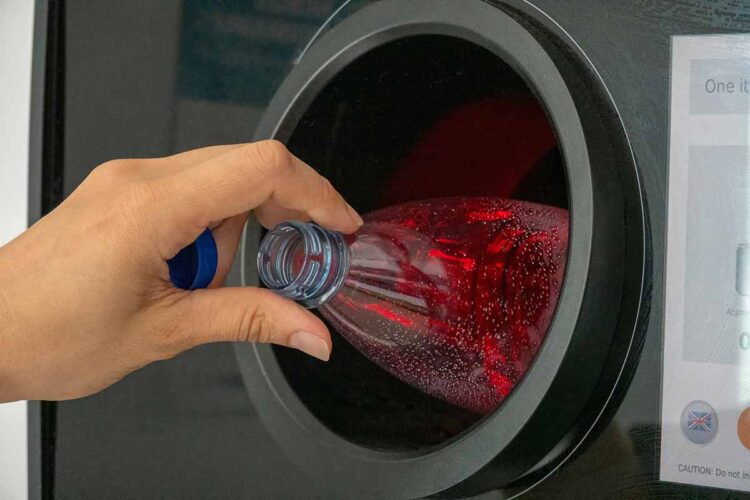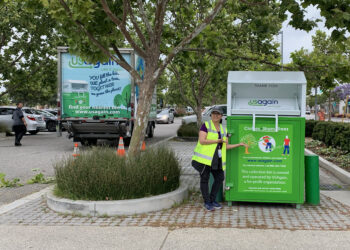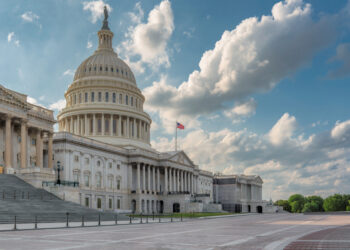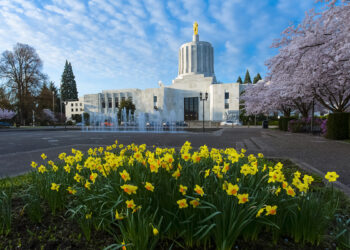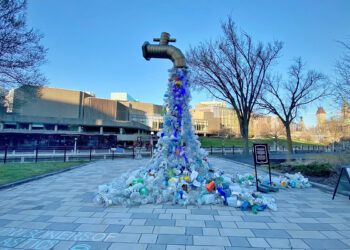Oregon state lawmakers recently approved a bill that allows the state to designate new redemption centers in Portland tailored toward canners — people who redeem containers on a daily or near-daily basis — and to allow retailers operating nearby to provide fewer redemption services.
Senate Bill 992, approved by the Oregon House in April and the Senate in May, primarily modifies how containers can be redeemed in Portland, the state’s largest city. It would make a number of changes that effectively create new types of redemption centers and awaits a signature from Gov. Tina Kotek, a Democrat.
An alternative center must be operated by a nonprofit organization and be sponsored by a distributor collective, namely the Oregon Beverage Redemption Cooperative, the producer responsibility organization that manages beverage producer compliance in Oregon.
The alternative center would need to provide the standard Oregon redemption services allowing individuals to return up to 350 containers per day. With the alternative center established, large retailers within a 3.5-mile radius would be allowed to reduce their redemption services in a couple ways. They could either provide funding to the alternative collection program and stop redeeming containers entirely, or opt to only accept pre-bagged containers returned through OBRC’s BottleDrop bag drop program.
The proposal builds on an existing program within Portland, the People’s Depot, which is operated by the nonprofit Ground Score Association. The depot is “a can and bottle redemption site that is run by and for workers who collect and redeem cans and bottles for income, otherwise known as canners,” the group wrote in a report submitted during the recent legislative proceedings.
The legislation essentially enables an expansion of the People’s Depot, creating a larger centralized location tailored to daily canners. In concert, it allows large retailers in the vicinity to scale back their redemptions. Retailers have described “uncomfortable and unsafe interactions as a result of operating bottle returns at their stores,” the CEO of the Northwest Grocery Association told Willamette Week.
The bill also allows small convenience stores in the same vicinity to reduce redemptions and limit the hours they accept returns. Convenience stores have also described unsafe conditions, particularly during late-night redemptions. And the legislation allows stores statewide to limit their redemption hours to 8 a.m. to 8 p.m.
The bill received broad support from OBRC, the Portland Metro Chamber, the Northwest Grocery Retail Association and Ground Score Association, the nonprofit depot operator.
Opponents, however, testified the bill doesn’t address safety concerns around redemption centers but just moves them away from retail locations, and that it only applies to Portland, even as surrounding Oregon cities face similar problems.












